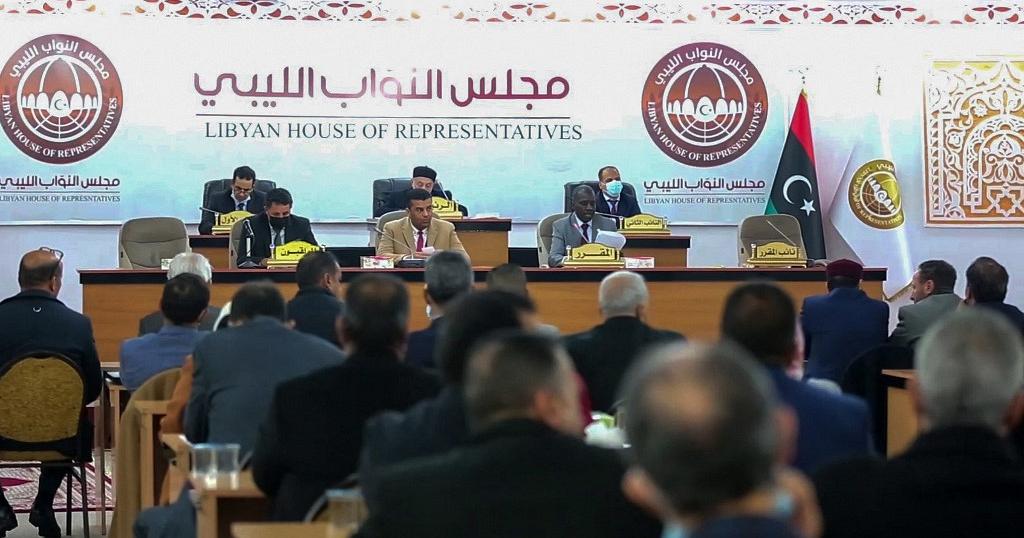Libya’s parliament on Thursday appointed former interior minister, Fathi Bachagha to replace Abdelhamid Dbeibah as head of government in a controversial vote, a challenge to interim premier Abdulhamid Dbeibah’s administration.
“The parliament voted unanimously to give confidence to Fathi Bachagha as head of government,” parliamentary spokesman Abdallah Bliheq said after a session in the eastern city of Tobruk. The parliament had selected two candidates out of a total of seven: Fathi Bachagha, 59, and the outsider Khaled Al-Bibass, 51, a former senior official in the same ministry.
Before the vote, parliamentary speaker Aguila Saleh, one of the Dbeibah government’s main rivals, said that Khaled Al-Bibass had withdrawn his candidacy, leaving Fathi Bachagha alone in the running.
Fathi Bachagha and Abdelhamid Dbeibah, both from the west of the country, have the support of armed groups in Tripolitania. The two politicians, who have a bitter rivalry, were also candidates in the presidential election that was scheduled for December.
“I will not accept any new transitional phase or parallel authority,” Abdelhamid Dbeibah warned in a televised speech on Tuesday, saying his interim government would only hand over power to “an elected government.
At the start of the session in Tobruk, parliament adopted a new amendment to the Constitutional Declaration, which has served as the interim constitution since 2011, with the aim of having certain articles amended by an ad hoc committee.
Libya has been mired in a political crisis since the fall of Muammar Gaddafi’s regime in 2011 with rivalries between the main regions, power struggles and foreign interference.
After years of armed conflict and divisions between east and west, the Dbeibah government was set up a year ago, under UN auspices, to lead the transition to the finally postponed elections.
The House of Representatives is seen as the preserve of its Speaker Aguila Saleh, an eastern cacique. He is accused of having violated all procedures to have Fathi Bachagha appointed. He had already been accused of derailing the political process by enacting a controversial electoral law in September, without a vote, tailored to his ally Khalifa Haftar.
“Many see today’s events in Libya – where a new prime minister has been fabricated in an attempt to consolidate certain political factions – as a fait accompli. This is in fact a confidence game that has been going on for some time now and is only meant to deflect efforts towards the electoral process,” commented Tarek Megrisi, an analyst at the European Council on Foreign Relations, on Twitter.
The parliament’s move risks the country being run by two parallel governments again, as was the case in 2014, in the midst of the civil war.
AFP




